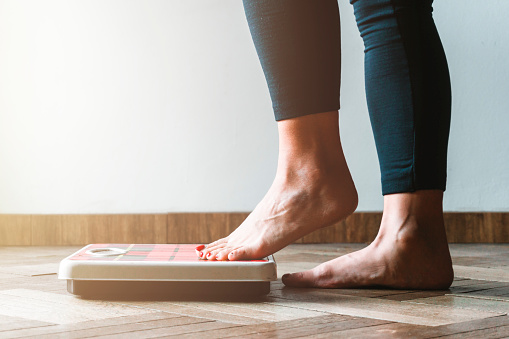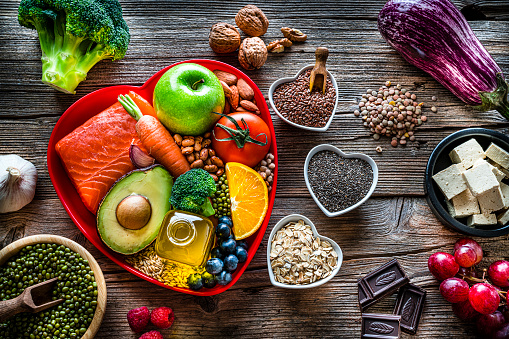What are the macros and calories for the ketogenic diet? I'm going to break it all down for you so you can also get amazing results with keto. I’ll also share the details on the nine specific blood markers to request from your doctor to determine if keto is working for you.
As the best selling author of four books & founder of Keto Kamp where our mission is to educate and to inspire 1 billion people, it is my duty to help you succeed in your health goals.
I'm super grateful you chose this article today. It's going to help you out on your ketogenic journey.
Previously, in this ten-part series on how to master keto, we talked about the very important details around the history of Keto and nuances that define clean keto foods & dirty keto foods and how to deal with common symptoms of keto - like the Keto flu, brain fog and fatigue. So if you haven’t already caught up on the previous articles, I highly suggest you do.
Now we’re going to break down the macros, the calories and the structure for you to get those results you want on keto. As you know, when you go on Dr. Google and you type in “what are the macros for the keto diet?” or “what is the keto diet?” you'll get over 100 million results! That can cause a lot of confusion.
The general percentages for your macros is - 85% of your total calories come from fat, 15% from protein and about 5% from carbohydrates. The issue with just following percentages is that the body is more sophisticated than just calories in versus calories out, which we’re going to talk a little bit more about.
Here's what I want you to understand. You can get your fat and calories from that ketogenic meal in front of you or you can get your fat and calories from your body fat. That's right! The goal here is to teach the body to start burning its own body fat. Keto is not about eating a bunch of bacon and fat and cheese. It's about going low carb enough for the body to start burning its own body fat, allowing your liver to produce ketones to fuel the brain.
It’s important to note, that you actually need to increase your protein intake in the first 30 to 60 days on keto. When you do this, not only is it going to help prevent any muscle loss but protein is unique because it activates satiety hormones and chemicals such as cholecystokinin, leptin, glucagon-like peptide and peptide YY.
All you need to know Keto Kamper, is that this helps you feel satiated & full. This prevents you from snacking. This prevents you from raising insulin in between your meals. That's what we want. So it's very important to get 40 to 50 grams of protein at every keto meal that you eat, especially the first 30 to 60 days.
This is exactly what I teach in the Keto Kamp Academy. So increase the protein, increase the healthy fats and that's going to help you feel satiated & full.
What are the best foods to eat on the ketogenic diet? Some of my favorite protein sources are grass fed grass finished beef, lamb, pastured eggs, bison and wild caught fish. I have a whole list for you in a previous article I did in this series; it's called the Keto Kamp Blueprint, and you can download it for free here.
But let's talk a little bit about the amount of calories you should you have on keto. The human body is not a bank account. It's not a math equation. It's not a calculator. The human body is a complex chemistry lab and we need to start treating it as such.
Do calories matter? Yes. Are they important? No. They are a huge distraction. To what really matters. What really matters is cell metabolism, hormones and reducing inflammation. All the tips I'm teaching you in this article and in all the articles and videos on my keto Kamp YouTube channel.
Food can upgrade or downgrade your biological software. Every bite determines a signal inside of your body. For example, you can eat 1000 calories of brownies versus 1000 calories of a kale salmon salad.
The person who has 1000 calories worth of brownies, they're going to store fat. They're going to have a fluctuation in their energy levels and they're not going to feel like a rockstar.
The person who has 1000 calories worth of a keto friendly meal, they're going to burn fat, they're going to have better energy levels and they're going to have hormones that do their job.
Same 1000 calories, completely different response.
Calories are a distraction. It's time to develop a relationship with the body where we know we had enough food, and we can stop eating. We have mechanisms in place to teach this intuition. There are no receptor sites within the body that count calories. Therefore, we need to stop counting calories.
Here’s my question of the day: Have you ever counted calories or ever been told and maybe you did it yourself, “exercise more, eat less, create a caloric deficit”? Comment below and let me know if you've ever tried it and if it ever gave you a long term results.
The bottom line is this, we can choose to eat high quality, keto friendly foods that will elicit a healthy metabolic response or we can choose to eat poor quality food, dirty keto foods that will elicit a negative metabolic response. The decision and choice is yours. This is why here at keto Kamp we teach you to not focus on weight loss. Instead, focus on health focus on reducing inflammation because we do not lose weight to get healthy, we get healthy to lose weight.
Dr. Berg says that all the time, and he's absolutely correct. When you get healthy, when you start eating healthy keto foods and doing it the right way, the weight will come off as a side effect, your symptoms will go away by default. And that's what we're all about here at Keto Kamp. We look at health from a cellular lens.
Here are some non scale victories I want you to pay attention to. Then I'm going to outline the nine markers to request from your doctor. Pay attention to the number on the scale even take that marker on day one but go seven weeks before you test the number on the scale again, because the number on the scale should not determine whether something is working for you or not working for you.
There can be so many reasons why the number on the scale, your weight, will fluctuate up and down. I'll give you a couple of reasons: soreness from a workout - you'll retain water, which can show on the scale. For you ladies, if it’s your monthly cycle, you'll retain water, it might show on the scale. A poor night's sleep, you'll have higher levels of cortisol, it might show on the scale. It's going to just lead you down a road of frustration and discouragement. We're not about that. So yeah, take it on day one, but also pay attention to non scale victories. Pay attention to how your energy levels are. Are they improving? Do you no longer have to take a nap in the afternoon? What about your sleep? What about your skin? What about specific measurements like body fat measurements? Take some photos. These are very important markers to have and it's just for you to keep track of your results.
Here's the final thing that I want to share with you. These are nine important blood markers that I want you to write down, bring it to your doctor, request your doctor have this done for you and track this. If you see improvements in these markers, then the keto diet that you're following is doing you great good.
As I share this with you, I want to thank you for reading this article and if you're getting any value from this take a second here to comment below and share what you loved and what you learned.
Here it is, get a full lipid panel. Lipid means cholesterol & fats. Get total cholesterol total HDL, total LDL and total triglycerides as well as a test called NMR, Nuclear Magnetic Resonance. An NMR test is going to look at not just your total LDL, but also the size of the particles. LDL is split up into large & fluffy particles and small & sticky particles. The large & fluffy are fantastic, as they actually clear out plaque in your arteries. The small & sticky are the ones that get lodged into your arteries. The NMR test will show the amount you currently have of each type of particle.
Not surprisingly, a pet peeve of mine is when I hear somebody say “my doctor saw that my total cholesterol and total LDL was high, so he wants to put me on a statin.” Let's be clear, more people die of heart attacks or heart disease with normal to low cholesterol than high cholesterol. Simply looking at the total LDL does not give you the full picture; however, looking at the entire scope of your lipids will give you a more accurate picture.
Additionally, you want to look at other inflammatory markers such as High Sensitivity C-Reactive Protein, Fibrinogen and Homocysteine. These are oxidative stress and inflammatory markers that we want to look at in combination with those cholesterol particles, to get a more complete picture. Also, get your A1C done which is your three month average of your fasting blood sugars. Get your fasting glucose done, you could do it by yourself or with a doctor. Fasting insulin is also important to get done. Lastly, a full thyroid panel with the antibodies to see if you have auto immune, and not just TSH, but all the markers T3, reverse T3 (rT3), free T3, T4, free T4.
These are markers that are going to give you the best data to let you know if keto is working for you or not, not the number on the scale, not chasing calories or macros but chasing health. That's what we're all about here at Keto Kamp
The next question I know you're asking is “how do you know if you are in ketosis?” or “how do you test and look for optimal markers of glucose and ketones?” Well, there are five signs. These are clear signs that let you know you're in ketosis and that you're doing a good job. I’m going cover all the details in the next article, which can be found right here.
Click the play button below to watch the video version of this article.




